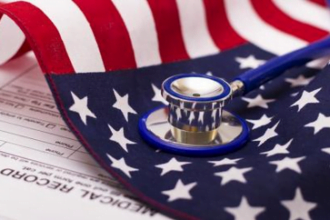Most people trust their pharmacist to provide them with the correct medication, but are you right to? Alarmingly, 2.3 million dispensing errors are made by pharmacies each year in The States, putting the lives of millions of unsuspecting individuals at risk. The country’s healthcare system is already under considerable scrutiny due to reports of multiple healthcare data breaches taking place, so the news that millions of lives are being put in jeopardy every time someone walks out of a pharmacy is a difficult fact to get your head around.
The risks
Dr. Shepherd, the former Chairman of the Pharmacy Administration Division of the College of Pharmacy at the University of Texas in Austin believes that pharmacy errors are accountable for as many as 100,000 deaths, adding, “It’s huge, it’s a big problem.” Lauren Kagan from Avon feared she could have been one of these 100,000 after being prescribed a quarter of a milligram pill of an anti-anxiety medication to be taken prior to a routine scan. Instead, the pharmacist gave Laura two milligrams of the medication. Thankfully, Laura took just one pill and the medical staff due to undertake her scan acted quickly to save her life.
Why are so many mistakes happening?
Overworked pharmacists who are under significant pressure to improve their medication dispensing time could be one factor to blame for so many incorrect medications making their way into the homes of the country’s population. Due to demand, many pharmacies are choosing to stay open 24 hours a day and while there isn’t currently a shortage of pharmacists in the country, the number of them willing to work night shifts is small, meaning those that are prepared to work late are packing in longer hours than is deemed healthy.
Incorrect prescriptions
Worryingly, it’s not just pharmacies that are slipping up, doctors and qualified medical staff are making fundamental errors, too. The Prevalence of Antibiotic Prescriptions Among US Ambulatory Care Visits study found that almost a third of patients who were prescribed antibiotics from their doctor did not require them, were given the incorrect dose or weren’t given a long enough course of them to tackle their infection. With antibiotic resistance growing in America and throughout the Western world, it’s vital that antibiotics are prescribed with care, but this study reveals this is far from the case at present.
Protecting yourself
While you should be able to rely on your doctor and your pharmacist to provide you with the correct medication, the above cases demonstrate that this isn’t always happening, therefore, you should do all you can to protect yourself. Before heading to the doctors, ask yourself if you really need to go and if you are prescribed antibiotics and feel you don’t need them, don’t be afraid to challenge him or her. When you receive your prescription, make a note of the dosage your doctor has prescribed so that when the pharmacist hands over your medication you can check that the dosage on the dispensing label matches your doctor’s instructions. You should always inspect your medication before you sign for it and you should be checking to see that the packaging looks the same as the one you’ve received before and that it’s your details and your doctor’s details on the label.
Have you been affected?
As soon as you realize that a mistake has been made, stop taken the medication immediately and notify the pharmacy. Due to the serious nature of this issue, you are within your rights to explore your options for making a medical complaint. You’ll need to have a check-up so that your doctor can determine whether the medication you’ve been taken has had an impact on your body, just as new mom, Maria Rique Gamboa discovered. After giving birth at 31 weeks following a diagnosis of pre-eclampsia, Maria was given medication to lower her blood pressure. However, it soon rocketed to dangerously high levels due to the pharmacist giving her the incorrect dose of the drug she was prescribed, as a result, she was hospitalized, meaning she missed out on valuable time with her newborn.
Each year, millions of people are being put at risk by overworked and fatigued pharmacists dishing out incorrect medication. Doctors are also responsible for not maintaining good standards when it comes to prescribing antibiotics. Therefore, individuals should take steps to protect themselves from becoming a victim of this major issue and be prepared to challenge and check all prescriptions and medications handed out to them.







